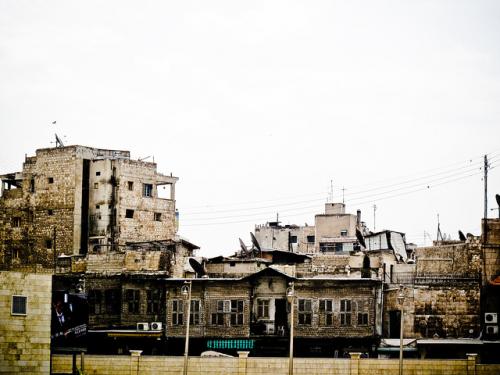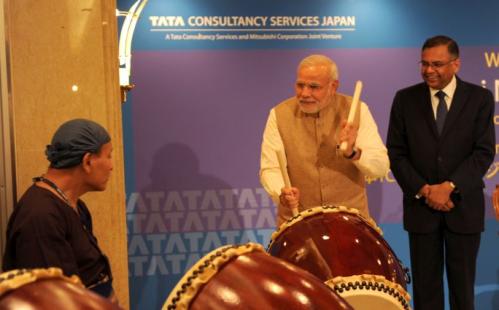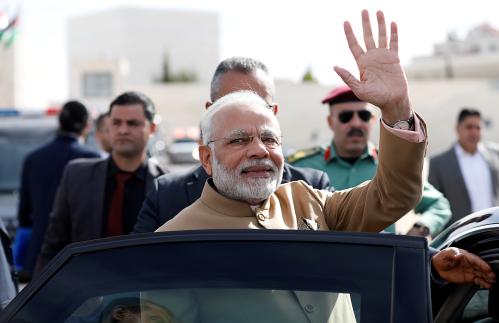Content from the Brookings Institution India Center is now archived. After seven years of an impactful partnership, as of September 11, 2020, Brookings India is now the Centre for Social and Economic Progress, an independent public policy institution based in India.
The Syrian Foreign Minister’s visit to India this week underscores the growing multipolarity of the Middle East. Various regional players are recognizing the importance of Asian powers in the Middle East’s strategic future. The trip comes on the back of a visit to China last month of both senior Assad regime and opposition figures. During the China visit, the Syrian Foreign Minister confirmed that the government would be willing to participate in the peace process.
The Syrian regime has long sought India’s support and diplomatic involvement in the conflict. Damascus backed Delhi’s attendance at Geneva II. India has steadfastly opposed foreign intervention to oust the regime (as seen in Delhi’s statements and votes at the UN). The Assad government sees India as a potentially influential, though quiet friend. The Indian Ministry of External Affairs (MEA) website, states that during the current unrest, “Syria has deeply appreciated the support…from India other members of BRICS at the UNSC”
The visit to India is part of the Assad regime’s broader Asia strategy. The international optics of being hosted in Delhi, including reports of Foreign Minister Muallem meeting with Prime Minister Modi, will be seen as a victory by the Syrian government. Beyond this, it will seek to not only maintain the muted diplomatic support India and China have provided at the UN, but to convince these states that the new strategic reality of Russia’s intervention should change their calculations.
Damascus will likely ask Delhi to be more vocal in its position. The Syrian government may try to persuade India that Russia’s intervention has made Delhi’s existing position look more centrist, providing cover for a more active approach. It may also argue that with Washington facing the major challenge of Moscow’s military action, it will be in less of a position to push Delhi to acquiesce. Damascus might seek to convince India that the government of a post-conflict Syria will likely have remnants of the regime who will not forget who its friends were. It will highlight the US’s backing down on its precondition that Assad leave, and emphasise Russian President Putin’s push to ensure Assad is allowed to run in the 2017 elections.
The Syrian foreign minister may also pull the ‘China card’ during his India trip. Delhi sees the Middle East as a region of potential future strategic competition with Beijing. Syria could lobby India by outlining any support China has promised, appealing to Delhi’s objective of not being outshone by Beijing in West Asia.
Post-visit, there will unlikely be major alterations in India’s behaviour. Delhi’s actions will continue to be centred on votes and statements at the UN and elsewhere. These may become slightly more vociferous now. Seeking to maintain its ‘friend-to-all’ image, India’s diplomacy will be guided by the objective of balancing relationships with the US, Iran, the Gulf States and Israel. Delhi recognizes, however, that in each of its Middle Eastern relationships it has more leverage than its counterpart.
What’s in it for India?
India has a number of interests and values which underpin its position on Syria. Opposition to foreign intervention and support for state sovereignty (regardless of regime type) are long-held principles that by default make India’s position favorable to the Assad government. These principles are underpinned by anti-colonialism, Third World solidarity, interest in preventing foreign intervention in Kashmir, and cultural values such as pluralism, non-violence (at the interstate level) and tolerance. India can justify not criticizing Russia’s involvement as this was at the invitation of the Assad regime.
Delhi also has major interests in stability in the Middle East given its increased dependency on oil and gas imports. A clean victory for the rebels in Syria will give a morale boost to certain other regional insurgents, potentially causing further instability. Delhi will recall having to, along with its consortium partners, abandon oil investments due to security concerns in 2013. Instability also threatens India’s 7 million migrant workers.
Geopolitically, India will see Syria as an opportunity to strengthen its position as a potential security partner for Middle Eastern states (as it competes with both China and Pakistan). This includes countries feeling threatened or isolated by the West, like Iran and Syria, as well as those who feel they have received inadequate Western backing, like the Gulf States.
India will see its position as already strengthened given that there are now clearly two opposing international poles regarding the conflict with itself at neither extreme. By maintaining an independent, middle-ground stance on Assad, Delhi can maintain more leverage with all sides as they seek to win her over to their position. India will also closely monitor China’s approach to the conflict, including Beijing’s relations with both the Iran-led or Saudi-led camps.
Reducing the spread of terrorism is a driver for India’s position on Syria. Delhi is likely more suspicious than the West with regard many Syrian rebel groups. There has also been an increased presence of Indian jihadists in the conflict. India also fears the influence of extremists in Afghanistan, Pakistan and Kashmir.
Potential Impact on Peace Efforts
India may be able to have an, albeit limited, impact on peace efforts. In potential mediation initiatives, Delhi could employ substantial soft power due to its longstanding trusted, positive, benign reputation amongst almost all international players in the conflict. Syria’s ambassador to India stated that this placed Delhi in a “rare position”. India has leverage with the Assad regime given the latter’s isolation and Delhi’s ability to help influence global public opinion, particularly throughout the developing world. India may also evoke positive memories amongst the Syrian people, given the two states’ history of friendship. The MEA states that the countries share: long-standing historical and cultural ties; colonial experience; a secular, nationalist and developmental orientation; similar perceptions on many international and regional issues; and membership of the Non-Aligned Movement. India would also have economic leverage with the Gulf States who back the opposition, given its large and growing trade in energy and migrant labor.
This article originally appeared in The Huffington Post.
The Brookings Institution is committed to quality, independence, and impact.
We are supported by a diverse array of funders. In line with our values and policies, each Brookings publication represents the sole views of its author(s).






Commentary
Op-edIndia on Syria: The rising power’s position on a global conflict
The Huffington Post
January 14, 2016